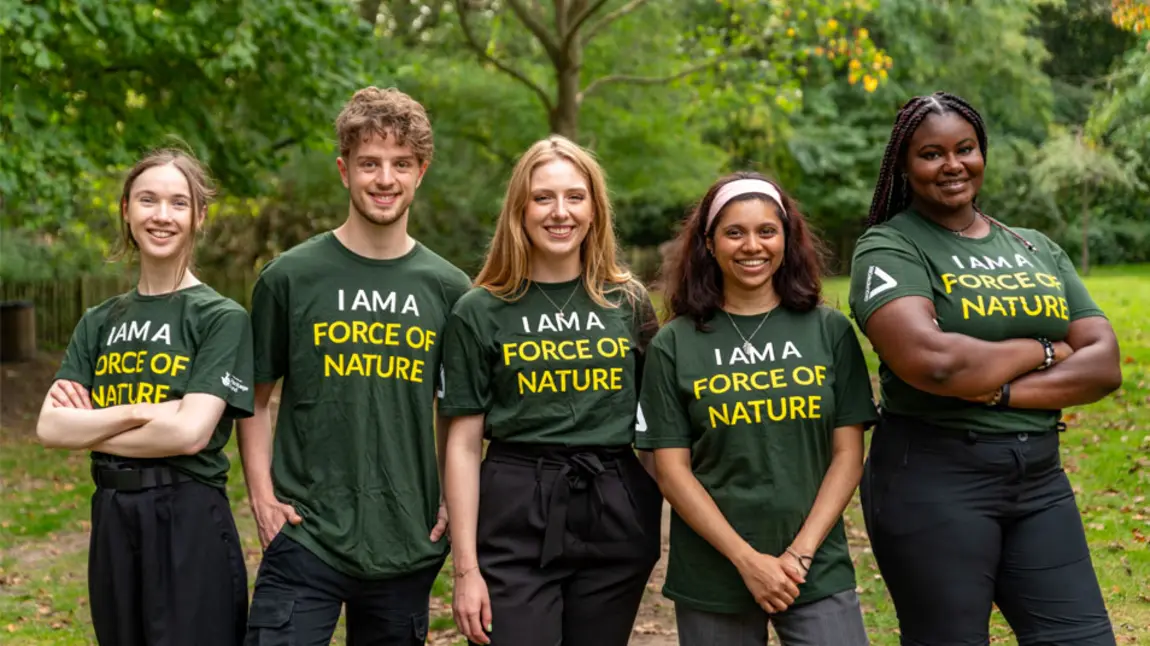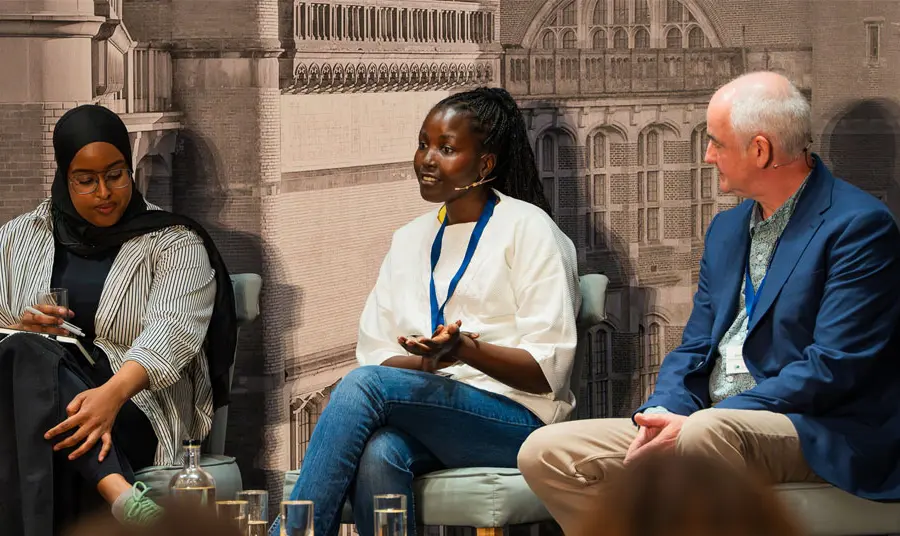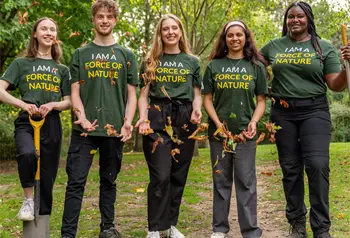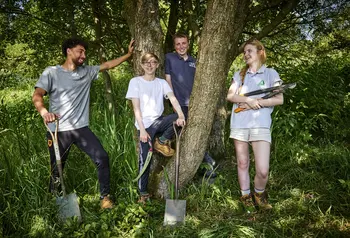How to attract and recruit diverse talent to your heritage organisation

New to Nature, our £3million partnership programme, launched in 2022 to offer paid nature-based work placements. Young people from an ethnic minority, who are disabled or who are from low-income homes were encouraged to apply to help enrich the environmental sector and target under-served talent.
Eighty two host organisations offered placements to 98 trainees, adopting new methods to ensure their opportunities were accessible to the priority groups. As a result of the inclusive recruitment process, 86% of the trainees were from at least one of the priority groups.
The scheme brought jobs that didn’t require stated qualifications, offered part-time if needed and actively sought applications from those with disabilities and health conditions.
Nina, New to Nature trainee at Cotswolds National Landscape
Inclusive recruitment
Part of the success was down to making changes throughout all stages of recruitment – from identifying an organisation’s diversity challenges by capturing data and staff feedback, to establishing an inclusive application process and ongoing two-way review.
Hugo, Science Assistant Trainee at Bumblebee Conservation Trust, said: “It was clear to me that the expressed desire to hire people from diverse backgrounds was not just a hollow statement but that New to Nature and the Bumblebee Conservation Trust were being proactive about addressing needs people might have.”

Benefits to heritage organisations
Inclusive recruitment removes barriers, widening the pool of potential candidates and helping to drive creativity and innovation in the workplace through introducing different perspectives and experiences.
Ana Oliviera, Garden Manager at Green Synergy, one of the organisations to host a trainee, said: “I think the programme is very good for small organisations that struggle with funding to increase capacity in the team. I think it will be improving inclusivity and recruitment practises and awareness of issues around race, neurodiversity and disabilities.”
Trainee Nina, Grants and Access Officer at Cotswolds National Landscape, said: “Due to a health condition, I was unable to complete my A Levels and cannot work full-time hours. The New to Nature scheme brought jobs that didn’t require stated qualifications, offered part-time if needed and actively sought applications from those with disabilities and health conditions. If the New to Nature programme had not actively sought those in minority groups including disabilities and health conditions, I wouldn’t have felt confident enough to apply.”
Driving long-term change
New to Nature celebrated the successes of the programme to date at an event that brought together some of the trainees in a roundtable discussion with key stakeholders from the natural heritage sector. The trainees were able to reflect on their experiences and share ways to ensure their legacy continued.
I want to get more people from my own background or people who might be singled out from society into the environmental sector.
Stephanie, New to Nature trainee at the Bat Conservation Trust

Thinking about the future, Stephanie, Volunteer Engagement Officer at the Bat Conservation Trust, said: “I’d like to have a career in the environmental sector. Being South Asian, we have our own ideas about climate change and we have our own answers to it as well. I want to get more people from my own background or people who might be singled out from society into the environmental sector.”
A practical guide to attracting diverse talent
Groundwork and the partner organisations involved in New to Nature share their recommendations for inclusive recruitment in a practical guide, which offers useful insight and advice for all types of heritage organisations.
Read the 10-step guide to inclusive recruitment.


